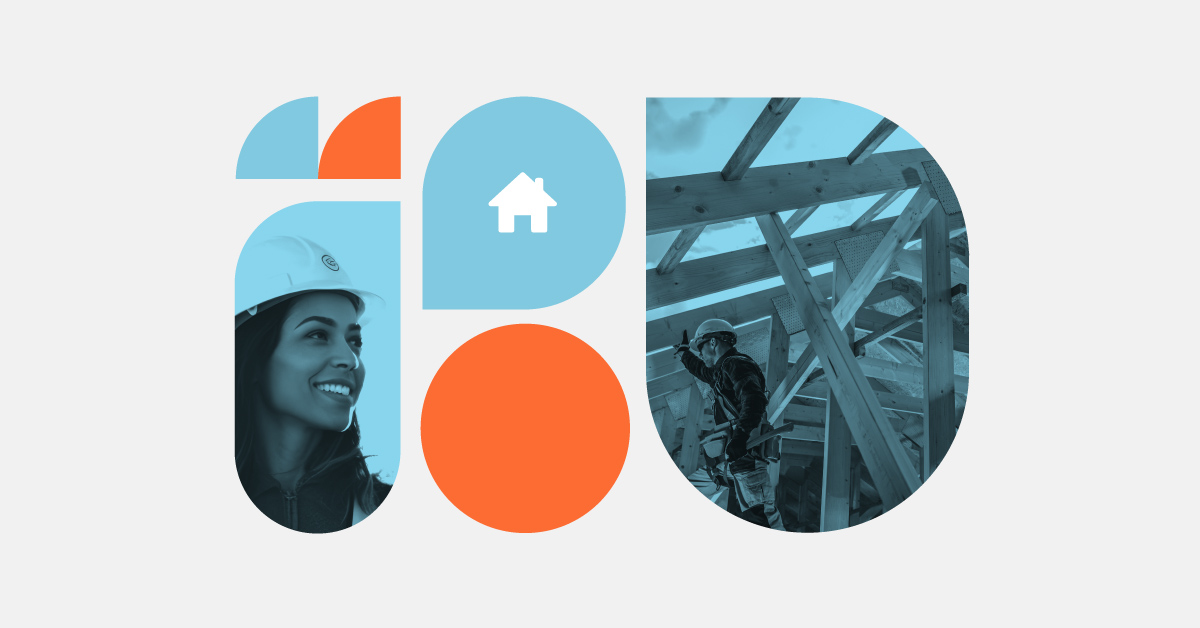As we navigate the shifting landscape of post-secondary education, CICan’s focus is sharper than ever.
For the first time, our vision is defined around five new Impact Goals that will direct our efforts around priority areas where we want to drive tangible change – where colleges and institutes can deliver results for their communities and the country.
Boosting Canada’s Job-ready Workforce
A key part of this vision is serving as the national voice for the innovative and inclusive training programs offered by colleges and institutes. These cutting-edge programs, including upskilling and reskilling initiatives, create fast and effective pathways to employment to address Canada’s critical labour shortages. They train the builders, makers, caregivers, first responders, and innovators shaping Canada’s economic future.
Why does this matter? Because a job-ready workforce is the only way to meet Canada’s – and the world’s – biggest challenges.
The Challenge: Build More Homes
Building a typical home involves more than 30 different skilled trades and technical occupations, from carpenters to painters, plumbers to electricians, masons to roofers and on-site managers, many of which are expected to retire by 2028. Preparation for these jobs comes directly from colleges and institutes.
- In fact, as experts in hands-on learning, colleges and institutes offer over 300 pre-apprenticeship programs in over 20 skilled trades. And, over 80 of those programs are designed to support groups that are traditionally underrepresented in the trades.
Harnessing the full potential of colleges and institutes to develop the homebuilding workforce will be key to realizing the success and greater downstream impact of federal housing investments.
The Challenge: Build Better Homes
Boosting innovation and labour productivity is pivotal for the future of Canada’s construction sector. According to a new report by economists at Toronto-Dominion Bank, Canada may face declining living standards if productivity does not improve, highlighting the construction sector as a particular concern due to this moribund productivity.
Colleges and institutes with strong community ties and expertise in skills training, applied research, and technology transfer, are essential partners in driving progress. They are building and reskilling the technical workforce required to meet future demands and build better homes through cutting-edge, inclusive training, upskilling and reskilling programs.
- Programs like the Algonquin Centre for Construction Excellence, known for its focus on Red Seal trades and sustainable construction and SAIT’s School of Construction with its comprehensive offerings in everything from design to operations, provide students with the advanced skills required to drive housing innovation.
To further support educators in delivering the skills shaping the construction sector—particularly in sustainability—CICan recently launched four Green Training Modules. These free modules equip educators with the tools to integrate climate awareness, eco-friendly practices, and Indigenous perspectives into their lessons, preparing students to build smart, sustainable housing that addresses environmental and community needs.
Colleges and institutes also play a role in driving innovative, sustainable research. For example, BCIT’s High Performance Building Lab explores designs and technologies to reduce energy consumption while enhancing comfort, while Cégep de Trois-Rivières is developing bio-based materials like hemp concrete to support greener, more energy-efficient construction.
Investing in the homebuilding workforce Canada needs
Looking ahead, CICan is focused on securing increased federal funding for college and-institute-based skills and training initiatives. We are calling for investments that accelerate housing construction while enhancing productivity and innovation in the construction workforce. Our fall 2024 recommendations to the House of Commons Standing Committee on Finance include expanding training opportunities and pathways in trades, supporting business innovation, and modernizing critical skills infrastructure.
Read: Canada’s Colleges and Institutes: Partners in Building Productivity
By fully leveraging colleges and institutes as high-value partners, Canada can equip its construction sector with the modern skills and innovative practices needed to drive productivity and build more and better homes faster.

